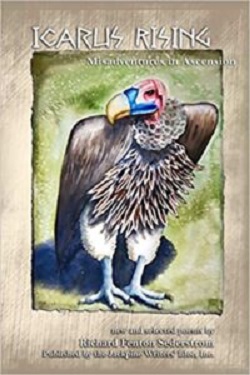“All right, then, I’ll go to hell!”—
Predicament 1: Finn
If you are Huck you are damned.
You know this.
Miss Watson said so:
implied with corrective zeal.
You are Huck.
You have not lived with authority.
But Miss Watson? No?
Your unlettered integrity. So—
You said so.
And saying is believing.
Believing, like remembering saying, is.
You find now that you are.
*
Predicament 2: Twain/Clemens/Twain
A protean character may be
rounded among the twists and curves,
or pinched into the flint-shard crevasses
of angles.
“Heaven for the climate.
Hell for the company.”
But who’s to choose?
Who’s not to choose?
*
Predicament 3: Dante
The holy damned
have long forsaken the gift of lying.
But the gift of humor?
Does truth in laughter
tend toward freedom?
Damned freedom?
The greater the nudge of Holy Paradox,
Sanctus et Quantum, how much
better the surprise of irredemption—
your, our, their unseeled agony of vision
all through the talk and laughter:
“For the company”!
*
Predicament 4: Estragon
E: “Nothing to be done.”
V: “Everything’s dead but the tree.”
E: “True. . . .
Yes, let’s go”—
[They do not move.]
*
Predicament 5: A poet’s dilemma:
“I’ve long longed to write a short piece,
its core in some famous play, like maybe
The Caucasian Chalk Circle. Or,
Well ‘There’s no lack of void . . . unfinished . . .'”
The shadow-hall of art is chthonic still,
its corridors narrow, bound, and blind.
Do most poems have some poet to blame?
Then a true poem has its silence for praise.











